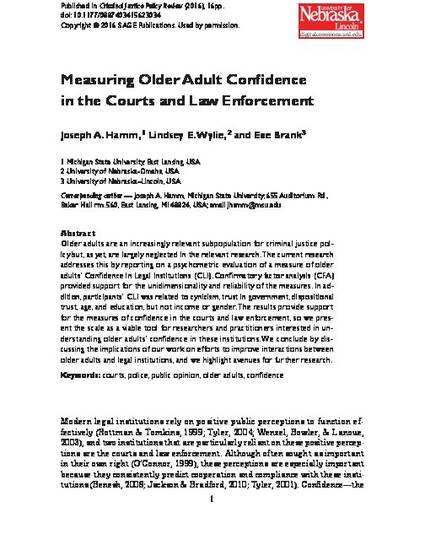
Published in Criminal Justice Policy Review (2016), 16pp. doi: 10.1177/0887403415623034
Older adults are an increasingly relevant subpopulation for criminal justice policy but, as yet, are largely neglected in the relevant research. The current research addresses this by reporting on a psychometric evaluation of a measure of older adults’ Confidence in Legal Institutions (CLI). Confirmatory factor analysis (CFA) provided support for the unidimensionality and reliability of the measures. In addition, participants’ CLI was related to cynicism, trust in government, dispositional trust, age, and education, but not income or gender. The results provide support for the measures of confidence in the courts and law enforcement, so we present the scale as a viable tool for researchers and practitioners interested in understanding older adults’ confidence in these institutions. We conclude by discussing the implications of our work on efforts to improve interactions between older adults and legal institutions, and we highlight avenues for further research.
Available at: http://works.bepress.com/lindsey-wylie/21/

Copyright © 2016 SAGE Publications. Used by permission.